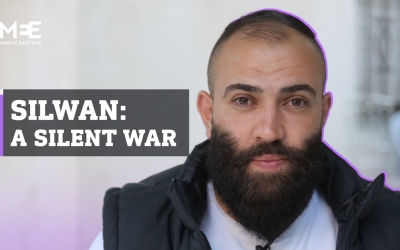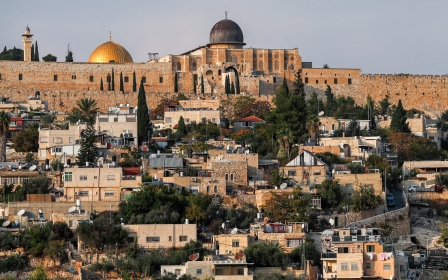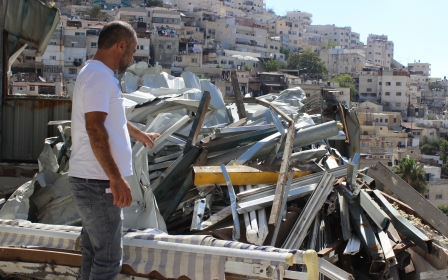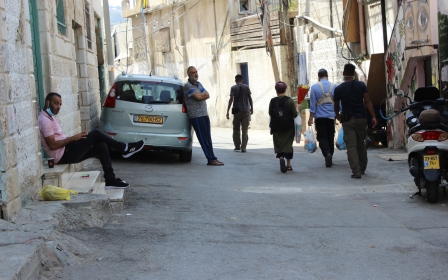Israeli forces raze Jerusalem homes, leaving 40 Palestinians destitute
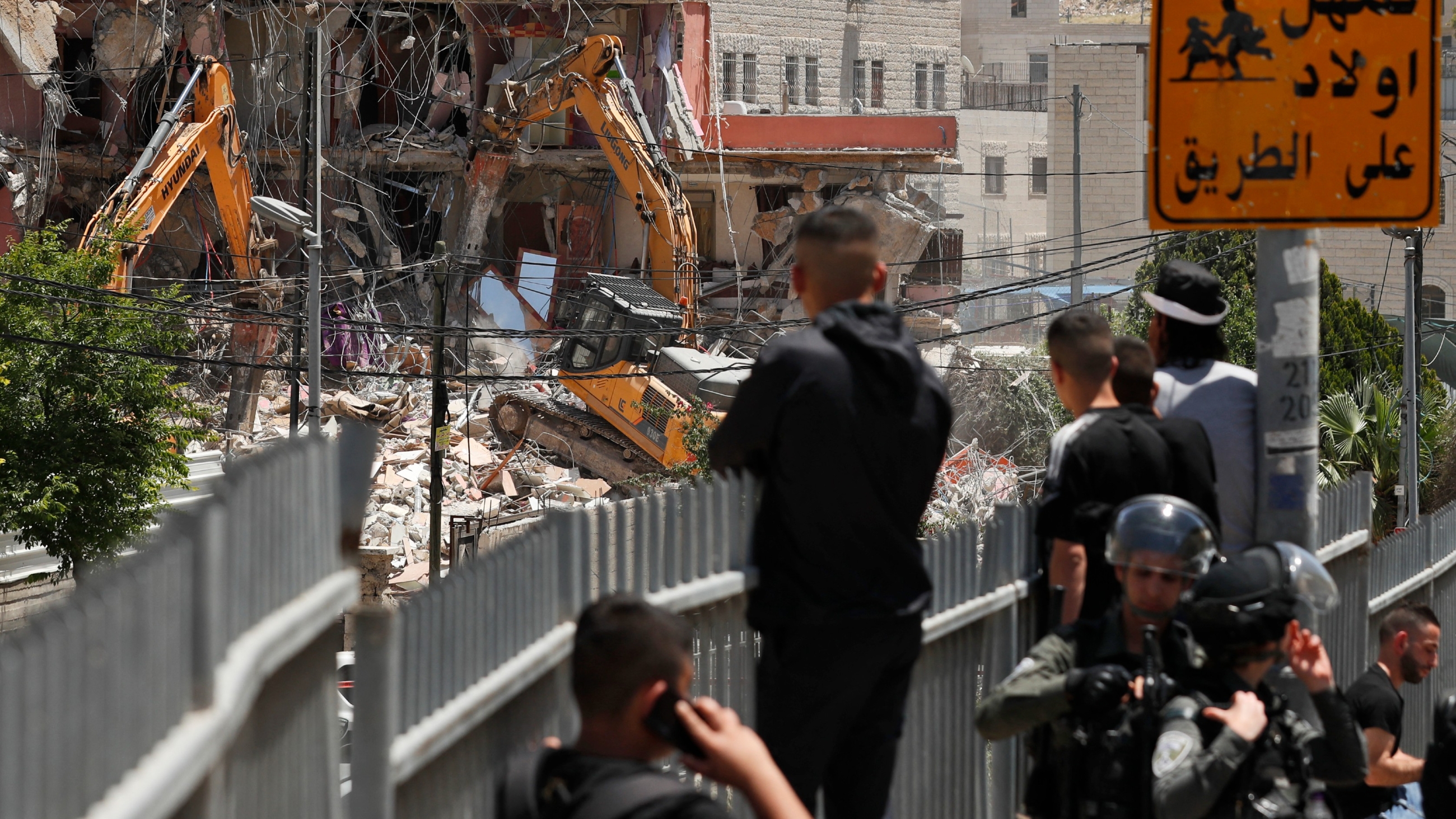
More than 40 Palestinians were made homeless on Tuesday after Israeli forces razed their homes in occupied East Jerusalem.
Early in the morning, Israeli forces and bulldozers arrived at the Silwan town and removed residents of a three-storey building owned by the Rajabi family ahead of its demolition.
Residents had little time to move their belongings, an eyewitness told Middle East Eye, and were assaulted by police for resisting the demolition along with neighbours who arrived at the scene to show support.
At least five people sustained wounds from beatings in the Israeli crackdown, with one transferred to the hospital, the Palestine Red Crescent Society (PRSC) said.
Footage shared on social media by local activists and journalists showed distraught members of the Rajabi family as they watched their homes being knocked down.
"The family has lost everything," said Fakhri Abu Diab, the head of the Silwan Lands Defence Committee who was present during the demolition.
"They lost their past, their memories, their belongings and their home. They are now [living] in the open," Abu Diab told MEE.
'[The family] lost their past, their memories, their belongings and their home. They are now in the open'
- Fakhri Abu Diab, activist
Israeli authorities had issued a demolition order against the house, built in 2001 and owned by Osama Rajabi, under the pretext of a lack of a building permit.
The building contained five residential units where Rajabi and his four sons lived with their families.
The family rejects the claim that the building was unauthorised, saying they have been paying taxes to the municipality for over 20 years like every other house in the city.
Mass expulsions
Hundreds of families in Silwan, located south of the al-Aqsa Mosque in Jerusalem’s Old City, are facing the threat of expulsion by Israeli authorities.
The strategic town spanning 6,540 dunums is home to more than 60,000 Palestinians.
Israel has grand plans for the area, intending to build a string of tourist parks, themed around biblical stories and figures, in the neighbourhoods of al-Bustan, Wadi al-Rababa, Batn al-Hawa and Wadi Hilweh.
The municipality claims that around 100 houses in the al-Bustan neighbourhood were illegally built and must be removed to clear the area for a park under the name of "King’s Garden".
Israelis claim that the area was the site of the biblical garden of King David.
According to Abu Diab, there are more than 7,820 demolition orders - between administrative and legal - in Silwan, putting thousands of people at the risk of displacement.
Administrative demolition orders by Israeli authorities in the occupied West Bank and East Jerusalem are often based on the grounds of residents not having a building permit.
However, the Israeli government makes it virtually impossible for Palestinians to get those permits, while at the same time announcing and expanding settlements for its citizens.
Israel's control of East Jerusalem, including the Old City, violates several principles under international law, which stipulates that an occupying power has no sovereignty in the territory it occupies and cannot make any permanent changes there.
"This demolition breaches international law because it took place in an area considered occupied," Abu Diab said.
"But where is international law? Where is the international community? We no longer trust them," he added.
"People have nothing to lose and [these violations] will push them to react and the international community bears the responsibility for it."
Middle East Eye propose une couverture et une analyse indépendantes et incomparables du Moyen-Orient, de l’Afrique du Nord et d’autres régions du monde. Pour en savoir plus sur la reprise de ce contenu et les frais qui s’appliquent, veuillez remplir ce formulaire [en anglais]. Pour en savoir plus sur MEE, cliquez ici [en anglais].


